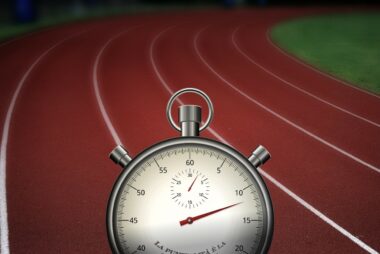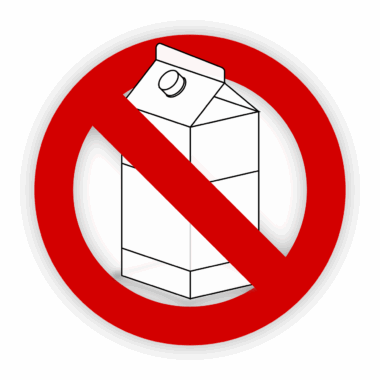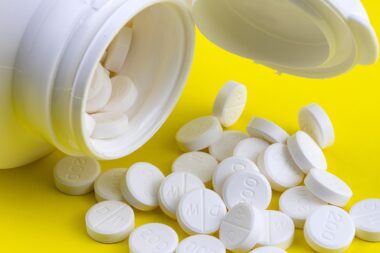How Probiotics Influence Supplement Side Effects in Fitness Enthusiasts
In the realm of sports nutrition, understanding the interactions of various supplements can aid fitness enthusiasts in achieving their goals effectively. The significance of probiotics, live microorganisms beneficial to gut health, has garnered attention regarding their possible interactions with supplements. These interactions could influence side effects and performance outcomes. Maintaining a balanced gut microbiome through probiotics may mitigate adverse reactions that sometimes accompany various supplements. Specifically, probiotics can enhance nutrient absorption, ensuring supplements taken are utilized efficiently by the body. Additionally, they can help reduce gastrointestinal side effects, such as bloating and discomfort, that often discourage individuals from using certain supplements. Research suggests that a healthy gut can positively affect the effectiveness of amino acids, creatine, and protein powders. Careful consideration should be given to the proper dosages and timing of probiotics in conjunction with these supplements. Ultimately, individualized supplementation that includes probiotics may yield a more balanced response and minimize negative side effects in fitness enthusiasts. Overall, this strategic approach could potentially lead to better adherence to supplementation regimens and improved fitness outcomes for individuals seeking to enhance their performance.
Understanding Probiotic Functions and Benefits
Probiotics play a crucial role in maintaining gut health, influencing overall well-being in athletes. The microbiome’s balance is essential for effective digestion and nutrient absorption. Fitness enthusiasts often turn to various supplements to enhance their performance, but without a healthy gut, these benefits can be limited. Probiotics help by promoting the growth of beneficial bacteria, which can directly impact how our bodies process supplements. Increased concentrations of probiotics can reduce the occurrence of gastrointestinal side effects such as diarrhea and cramping, commonly associated with certain nutrient supplements. It’s essential to consider the different strains of probiotics, as they may have unique effects on the body, particularly in relation to supplement interactions. Specifically, strains such as Lactobacillus and Bifidobacterium have been shown to support the digestion of proteins and carbohydrates, making them valuable for active individuals. Moreover, research indicates that probiotics can enhance immune function, which is especially important for those who engage in high-intensity training. As a result, incorporating probiotics into their routine may provide athletes with enhanced recovery, reduced inflammation, and improved performance outcomes over time.
Several studies analyze how probiotics interact with popular supplements such as whey protein, creatine, and branched-chain amino acids (BCAAs). These supplements are widely used by fitness enthusiasts to build muscle and enhance overall performance. Probiotics have been found to help optimize the utilization of amino acids, ensuring that the body can effectively synthesize proteins. As protein powders are common dietary staples, the timing of consumption becomes critical. Post-workout, the introduction of both protein and probiotics can lead to optimal muscle recovery and support anabolic processes. Notably, creatine is known for providing an energy boost during workouts, and studies suggest that probiotics may enhance its absorption at the cellular level. Regarding BCAAs, probiotics could assist in reducing exercise-induced muscle damage and soreness, thus potentially decreasing recovery time. While the benefits seem promising, it is essential to choose the right combinations for any individual’s body. An imbalance in nutritional intake or improper proportions could negate positive effects. Therefore, it is advisable for athletes to consult with professionals who specialize in sports nutrition to tailor their supplement regimen.
The Role of Gut Health in Athletic Performance
Optimal gut health is a cornerstone of successful athletic performance, influencing everything from energy levels to recovery. Fitness enthusiasts often overlook this important aspect, focusing primarily on macronutrients and workout regimes. A healthy gut microbiome can drastically improve how supplements function in the body, as it provides a fertile ground for nutrient absorption and assimilation. When individuals consume supplements without considering their gastrointestinal health, they may experience unpredicted side effects, such as bloating, gas, or nausea. These side effects can impair performance and lead to dissatisfaction with supplements, thus preventing athletes from achieving their desired results. By incorporating probiotics, athletes can proactively support their gut health, which may promote a more favorable environment for supplement effectiveness. Improved gut flora can optimize digestion, allowing for smoother transitions when introducing new products. Notably, research has shown that gut health can influence hormones responsible for appetite regulation, which plays a role in performance as well. Hence, adopting a gut-friendly approach not only enhances supplement usage but also helps manage energy levels during training and competition.
As fitness enthusiasts explore the interplay between probiotics and supplements, personal experiences showcase the varying outcomes individuals encounter. Some find that adding probiotics to their regimen enhances their tolerance to specific supplements, such as pre-workout formulas, previously associated with side effects like jitters or upset stomachs. Others may find relief from exercising discomfort by incorporating probiotics alongside their nutritional strategies. These anecdotal experiences point toward the necessity for further scientific investigations to reveal specific mechanisms behind these benefits. The gut-supplement connection can vary widely among individuals due to differences in microbiome composition, lifestyle, and dietary habits. To fully capitalize on this synergy, athletes should prioritize personalized approaches. This includes keeping track of foods consumed, supplements taken, and the effects of adding probiotics. A systematic approach can guide adjustments, helping individuals find what works best for their unique body chemistry. Research indicates that chronic side effects may arise not just from the presence of the supplement, but from an imbalanced gut microbiome. Thus, the constant awareness of one’s responses and adaptations is critical for success.
Conclusion: A Comprehensive Approach to Supplements
In conclusion, understanding the interplay of probiotics and supplements can offer tangible benefits to fitness enthusiasts, allowing them to maximize their performance potential. Striking a balance requires a comprehensive approach, emphasizing the importance of both gut health and the supplements consumed. By recognizing individual responses to probiotics, athletes can craft tailored supplementation strategies that elevate their training outcomes. As research continues to evolve, the practical applications of probiotics in managing supplement side effects will likely expand. A proactive mindset towards gut health not only enriches the experience with supplements but also optimizes athletic performance. This holistic perspective acknowledges the vital role of a healthy microbiome in maintaining physical capabilities. For athletes, this means approaching nutrition as an integrated system rather than a collection of isolated elements. Ultimately, fostering a culture of inquiry and experimentation empowers fitness enthusiasts to make informed decisions about their supplementation. As they continue to adapt and learn, optimal performance becomes a feasible goal. Therefore, a commitment to gut health through probiotics stands out as a promising pathway in the journey of fitness and athletic excellence.
In summary, the inclusion of probiotics as part of a supplement regimen can potentially influence side effects experienced by fitness enthusiasts. The exploration of how this relationship functions is a rapidly developing area of research. As awareness grows, a systematic integration of probiotics into fitness nutrition plans could transform how individuals respond to supplements. With ongoing studies providing insights, athletes are encouraged to remain curious and adaptive in their strategies, focused on optimizing results. This evolving perspective fosters a more profound understanding of how gut flora composition may shape overall health, performance, and recovery during training sessions. Therefore, it is imperative for athletes to prioritize responsible experimentation and maintain advisement from health professionals. This ensures that the benefits of supplementation are reaped without unnecessary complications. The contributions of probiotics to overall fitness and well-being illustrate the interconnected nature of nutrition and performance. A collaborative approach encompassing diet, gut health, and supplements will likely be fundamental for future sporting achievements. Ultimately, success lies in the diligence to embrace new discoveries and apply them to personalized fitness journeys.
Finally, self-reflection and ongoing research remain paramount in understanding the complex relationships between probiotics and supplements. As science delves deeper into this area, new insights will continue to emerge, paving the way for more effective sports nutrition interventions. Athletes should stay informed about recent studies and findings. By staying connected with the latest developments, they can enhance their knowledge and application of probiotics concerning their supplementation routines. Integrating these elements with traditional training regimens may offer well-rounded pathways to peak performance. It’s also essential for athletes to remain engaged with experts who can provide tailored guidance on supplementation and gut health. These collaborations can ensure that individual needs are met, leading to more significant benefits over time. An understanding of probiotics’ impacts highlights how one simple adjustment can transform an entire supplement strategy. Fitness enthusiasts aiming for optimal performance should consider implementing a holistic approach, one that recognizes the profound connection between gut health and the effectiveness of supplements. As they explore this fascinating intersection, opportunities will arise for enhanced health, recovery, and lasting performance gains.





